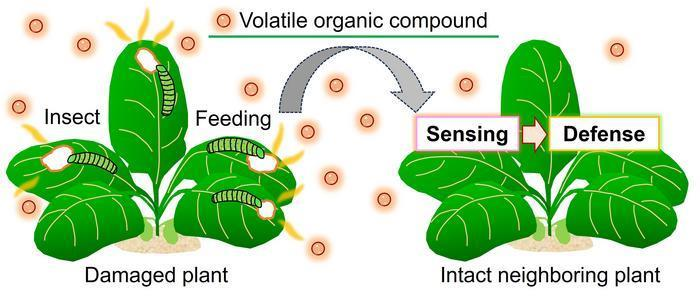Rapid Fire
Science of Plant Communication
- 23 Nov 2024
- 1 min read
Plants though silent exhibit a sophisticated communication system crucial for their survival functioning through chemical signals and underground networks.
- Chemical Warning System: Plants release volatile organic compounds (VOCs) when threatened by herbivores or other dangers.
- These airborne and soil-borne signals alert neighbouring plants to prepare defensive mechanisms like producing toxins.
- VOCs can travel through the air and soil, allowing communication over considerable distances to protect plants.
- Wood Wide Web: Through symbiotic relationships with mycorrhizal fungi, plants form an underground network called “wood wide web.”
- This fungal network facilitates nutrient exchange and distress signals, helping plants collectively respond to droughts or pests.
- Cooperation and Support: Plants share nutrients to aid struggling neighbours, especially in resource-scarce environments like dense forests.
- This cooperative behaviour fosters ecosystem resilience and enhances overall forest health.
Read More: Plant-to-Plant Warning Signals.





